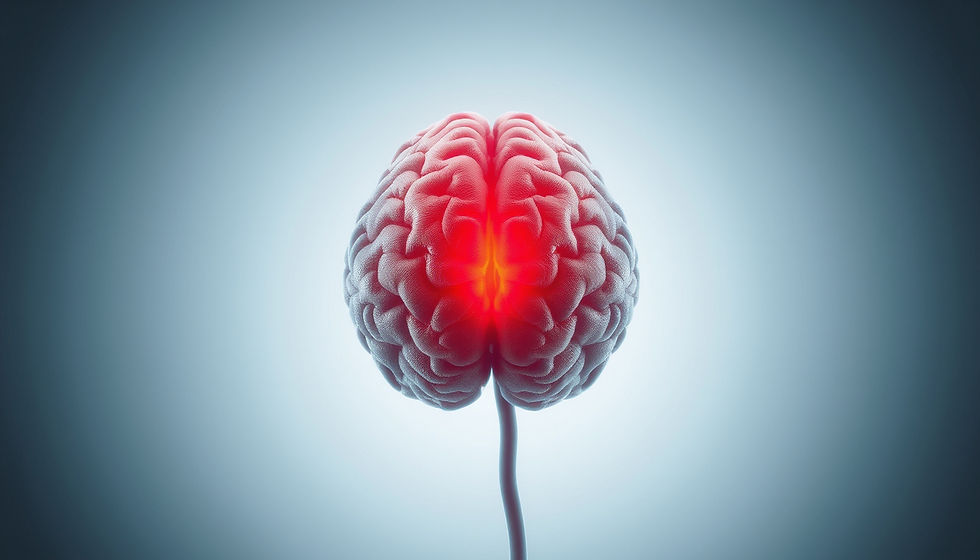Understanding Vascular Dementia Symptoms and Caregiver Support Strategies for Seniors
- Sweet Senior Home Care
- Jul 8, 2025
- 3 min read
Vascular dementia is a serious and progressive condition that affects thinking and memory. It stems from reduced blood flow to the brain, often caused by strokes or other vascular problems. For seniors and their families, understanding this condition is essential. It can significantly impact daily life, and knowing how to cope is vital for providing care and support.
Symptoms of Vascular Dementia
The symptoms of vascular dementia can differ from person to person. Here are some common signs to watch for:
Cognitive Decline: Many individuals struggle with decision-making, problem-solving, and planning. For instance, a senior may have trouble sorting bills or deciding what to eat, making even everyday tasks feel overwhelming.
Memory Loss: While Alzheimer’s disease primarily affects long-term memory, vascular dementia often leads to short-term memory loss. Affected individuals may forget recent conversations or where they placed their belongings, such as keys or glasses.
Confusion and Disorientation: Seniors may lose track of time or struggle to recognize familiar places. For example, they might become confused while wandering in their neighborhood.
Mood Changes: Emotional instability can arise. Statistics show that nearly 40% of individuals with vascular dementia experience depression or anxiety, impacting their relationships and overall wellbeing.
Physical Symptoms: These can include weakness in limbs, difficulty walking, or stiffness. Approximately 20% of those with this condition report having frequent falls due to coordination issues.
Recognizing these symptoms early can facilitate timely intervention and improve management strategies.
Treatment Options for Vascular Dementia
While there is no cure, effective treatments can help manage symptoms. Consider these approaches:
Medication: Doctors might prescribe medications that treat underlying conditions such as high blood pressure and cholesterol, improving blood flow to the brain. In fact, managing hypertension can reduce the risk of further strokes by up to 40%.
Cognitive Stimulation Therapy: This involves participating in mentally engaging activities. Studies show that such therapies can improve cognitive function in up to 35% of patients.
Physical Therapy: This helps boost mobility and strength, thereby lowering the risk of falls. Evidence suggests that physical therapy can improve functional abilities in around 50% of participants.
Lifestyle Changes: A balanced diet, regular exercise, and quitting smoking can have a positive impact on vascular health. Research indicates that adopting these habits can slow the progression of cognitive decline by about 30%.
Routine Health Check-ups: Regular appointments with healthcare professionals promote early detection of new symptoms. It is recommended that seniors have check-ups at least every six months.
Creating a tailored treatment plan focused on individual needs often yields the best results.
How Caregivers Can Help Family Members Struggling with Vascular Dementia
Being a caregiver presents both rewards and challenges. Here are some effective strategies:
Maintain Open Communication: Establishing an open and calm atmosphere fosters better communication. It encourages the affected family member to express their feelings and needs.
Provide Structured Routines: A daily schedule can help seniors feel secure. It reduces anxiety and allows for predictability, which can ease confusion.
Engage in Activities Together: Finding hobbies that interest the person can strengthen bonds and boost mood. Activities could include gardening, painting, or playing music together.
Learn About the Condition: Knowledge about vascular dementia helps caregivers manage expectations and communicate better with medical professionals. Understanding the stages can prepare them for what lies ahead.
Seek Support: Caregiving can be isolating. Reaching out to community resources or joining support groups can provide emotional relief and practical advice.

Prioritizing Emotional Wellbeing
Supporting someone with vascular dementia can take a toll on emotional health. Caregivers need to prioritize their own wellbeing while offering care.
Encourage Independence: Allowing seniors to handle simple daily tasks, such as making a snack or picking out clothes, preserves their dignity and supports independence.
Celebrate Small Victories: Recognizing the small successes can uplift both the caregiver and the individual. Celebrating a completed task, like a puzzle, can boost morale.
Be Patient and Flexible: Symptoms can vary from day to day. It's essential to adapt to changes in behavior or mood without frustration.

Gaining an understanding of vascular dementia symptoms and employing effective caregiver support strategies can dramatically enhance the quality of life for seniors and their families. By remaining informed about treatment options and practicing patience, caregivers can create an environment that promotes dignity and wellbeing. As awareness and understanding of vascular dementia grow, the role of community support and family involvement is increasingly important, ensuring that those affected lead fulfilling lives.




Comments